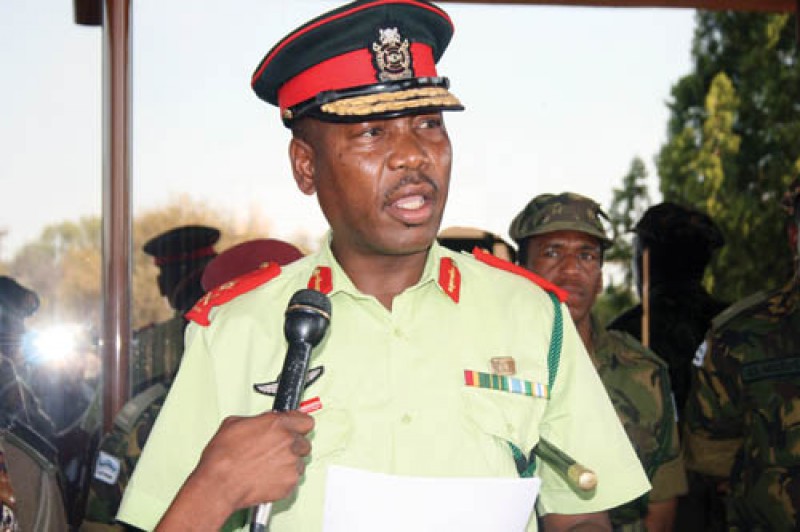High Court frees Maj. General Tiroyamodimo
Mpho Mokwape | Thursday April 23, 2015 18:41


Mmegi could not obtain Mothobi’s ruling at the time of going to press yesterday.
In his submission, Mmekwa argued that the Magistrate had failed to satisfactorily explain, reconcile and resolve the material inconsistencies of the witnesses and their evidence before accepting them as credible witnesses.
Tiroyamodimo had in 2012 escaped jail by a whisker when he was sentenced to one-year imprisonment wholly suspended with certain conditions on the conviction of drunken driving.
He was also convicted for failing to produce a breath specimen, giving false information and was fined P1,000 and P2,000 respectively together with the suspension of his licence for two years.
During the submissions, Mmekwa argued that the magistrate had erred in both law and in the facts when she relied on such contradictory and unreliable evidence.
“The magistrate failed both in law and facts and our submission is that the appeal be upheld and the convictions in relation to the three charges against our client be set aside and he be acquitted and discharged,” he said.
He also submitted that the prosecution during the trial had failed to lead credible and reliable evidence to prove its case beyond reasonable doubt against his client.
Mmekwa said the prosecution had failed to prove that his client was the driver of a motor vehicle registered B 928 ALD at the time of the collision.
“This is because the evidence that led the prosecution was fraught with irreconcilable contradictions and inconsistencies.
“If the witness’s evidence is shown to be unreliable in some material respects, why should the court rely upon it in the other respects, particularly where it is contradicted by other evidence by fellow witnesses for the prosecution,” he said.
The state, through attorney Dumisani Marapo said though the magistrate did not make a detailed evaluation of the evidence, the guilty verdict was relied on the cumulative factors of the convicted.
He said the magistrate also took into consideration the provisions of section 48(2) of the Road Traffic Act.
“The Act provides that where, in any proceedings for an offence under section 46 in connection with a motor vehicle, it is proved that the accused refused to consent to the taking of a specimen of the blood or a specimen of breath for analysis by a qualified person.
“This shall, unless reasonable cause is shown, be treated as supporting any evidence given on behalf of the prosecution or as rebutting any evidence given on behalf of the defence,” he said.
He further submitted that there was no material contradiction in the evidence of the prosecution on the conduct of the convicted, saying the magistrate was therefore entitled, upon the evaluation of the evidence, to accept the observations of all the witnesses.
Meanwhile the charge sheet that convicted Tiroyamodimo said he was under the influence of alcohol while driving a Toyota Land Cruiser that collided with another vehicle near Sir Seretse Khama Barracks in Mogoditshane in July 2010.
The charge sheet said he failed to provide breathalyser specimen. It further stated that Terrence Ketshabile later claimed that he was the driver of the Land Cruiser when in fact he was not.
Ketshabile, a private lawyer who was Tiroyamodimo’s co-accused was acquitted too.
He was serving a one-year imprisonment suspended for two years for giving false information.
